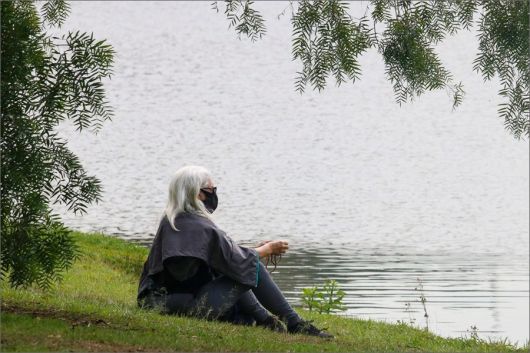
After long periods of isolation due to COVID-19, a face-to-face return to activities has become a reality for many workers who have stayed home during the most severe times of the pandemic. However, with appeal, some people have demonstrated what is known as social anxiety. Fear of pollution and the loss of the ability to live together are two aspects that can explain, at the moment, this mental health issue. World Mental Health Day, which falls on Sunday (10), points out the importance of paying attention to the topic without stigma.
“Fear, discomfort, and this feeling of avoidance are very common for those who return. [É preocupante] When that anxiety becomes very intense, to the point of generating very unpleasant and very intense physical reactions, which don’t go away from first contact, explains Flávia Dalpicolo, a professor in the Department of Neurosciences and Behavioral Sciences at the School of Medicine. Ribeirão Black of the University of São Paulo (USP).
Flavia, who is also a psychiatrist, explains that the symptoms are similar to anxiety for several reasons, such as anxiety, a change in breathing pattern, and an elevated heart rate. “Just that [está] Addressed to situations involving social contexts, or situations involving exposure assessment contexts, or situations involving a greater number of people, or even any situation, even if it is more intimate contact, but there is potential for an assessment [externa]. “
The teacher adds that social anxiety is usually more common in people who have previously experienced situations in their life history in which they have been ridiculed or ridiculed, such as cases of bullying, or who have deficient social skills, such as shyness or introversion.
“Now, because of the pandemic, with the return of personal activities, social contexts have become very dangerous and aversive. It has been very frequent for people who have never felt anxious in the face of social gatherings or more people to feel threatened. They feel that there can be a risky situation risk, and then, from that, anxiety reactions kick in,” he says.
Resume classes
Professor Silvia Almeida, 56, has been able to carry out most activities remotely with her students in this pandemic. Within a few moments, he had to be in person at school, since the beginning of the restrictions due to the novel coronavirus. During this period, she juggled physical education lessons on a computer screen with the care of her mother and uncle, who are now elderly.
As classes returned, however, without fully understanding what was happening, Sylvia experienced a rapid process of illness: dizziness, tachycardia, weakness, muscle pain and acute fibromyalgia crises. The daughter realized the need for psychological help, and after 20 days of taking antidepressants and psychotherapy, the teacher began to improve.
“In some cases where the symptoms are very severe, we need a psychological evaluation added to psychotherapy specifically to reduce the presence of these symptoms,” explains Flávia Dalpicolo. The psychologist adds that in unsatisfactory cases, the tendency is gradual exposure. “We don’t need to face everything at once, it can be incremental, but exposure and facing these contexts, is what allows us to develop ammunition and capacity and deal with this new normal.”

“Wannabe internet buff. Future teen idol. Hardcore zombie guru. Gamer. Avid creator. Entrepreneur. Bacon ninja.”

